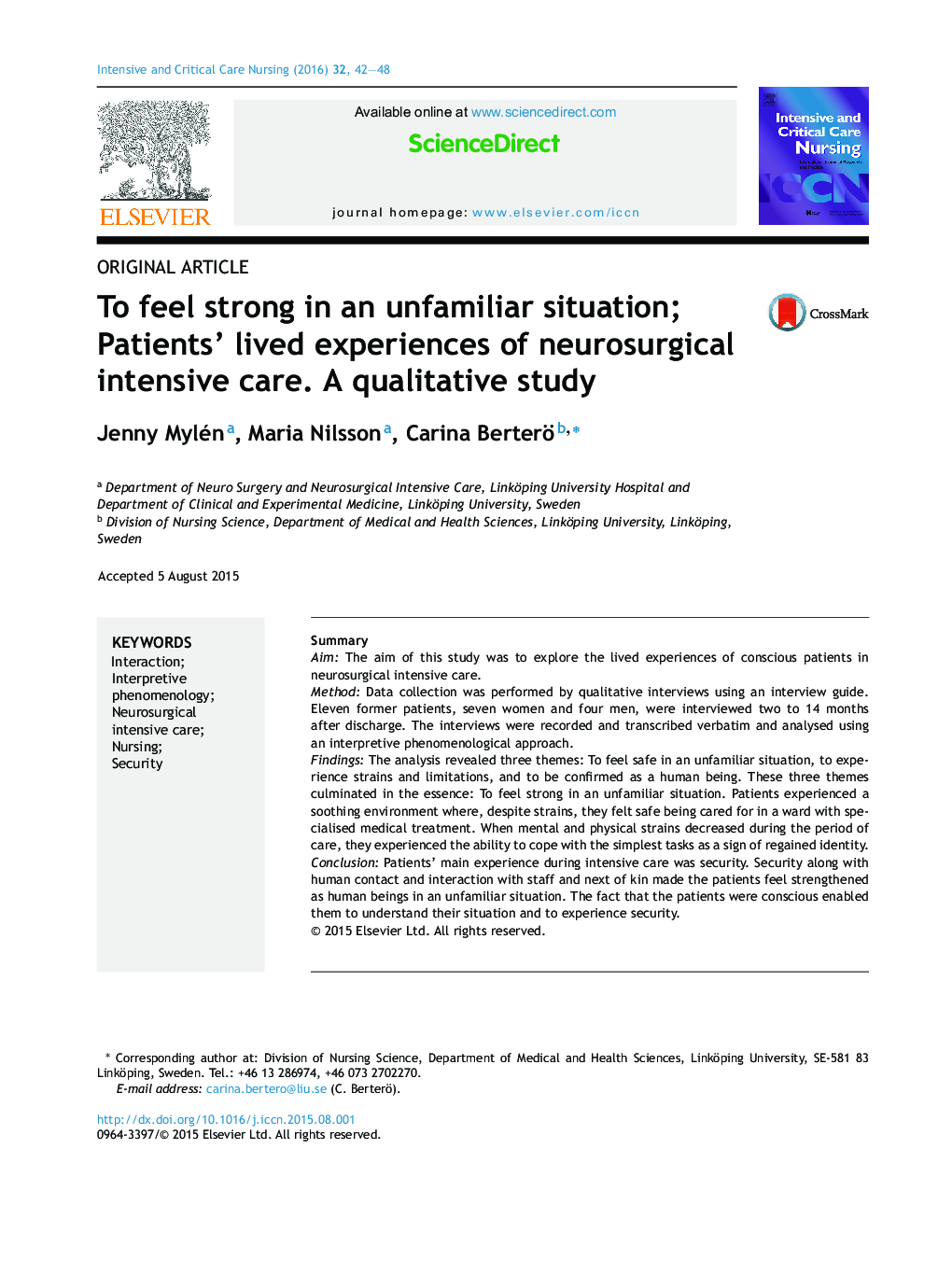| Article ID | Journal | Published Year | Pages | File Type |
|---|---|---|---|---|
| 5869297 | Intensive and Critical Care Nursing | 2016 | 7 Pages |
SummaryAimThe aim of this study was to explore the lived experiences of conscious patients in neurosurgical intensive care.MethodData collection was performed by qualitative interviews using an interview guide. Eleven former patients, seven women and four men, were interviewed two to 14 months after discharge. The interviews were recorded and transcribed verbatim and analysed using an interpretive phenomenological approach.FindingsThe analysis revealed three themes: To feel safe in an unfamiliar situation, to experience strains and limitations, and to be confirmed as a human being. These three themes culminated in the essence: To feel strong in an unfamiliar situation. Patients experienced a soothing environment where, despite strains, they felt safe being cared for in a ward with specialised medical treatment. When mental and physical strains decreased during the period of care, they experienced the ability to cope with the simplest tasks as a sign of regained identity.ConclusionPatients' main experience during intensive care was security. Security along with human contact and interaction with staff and next of kin made the patients feel strengthened as human beings in an unfamiliar situation. The fact that the patients were conscious enabled them to understand their situation and to experience security.
